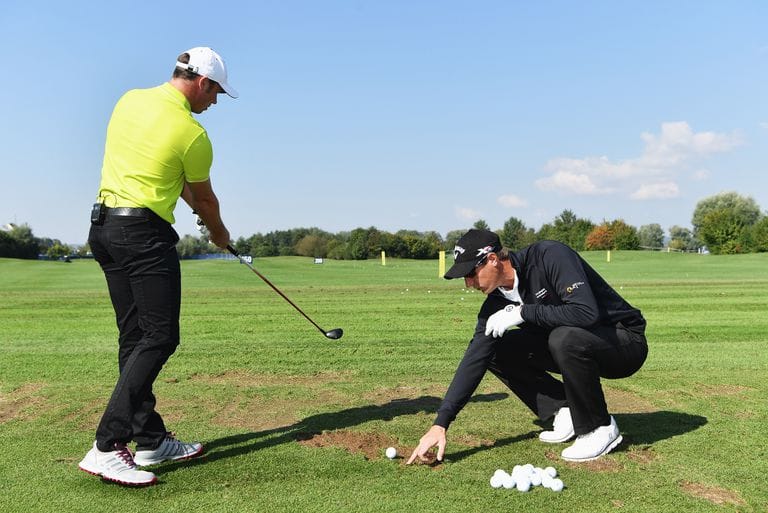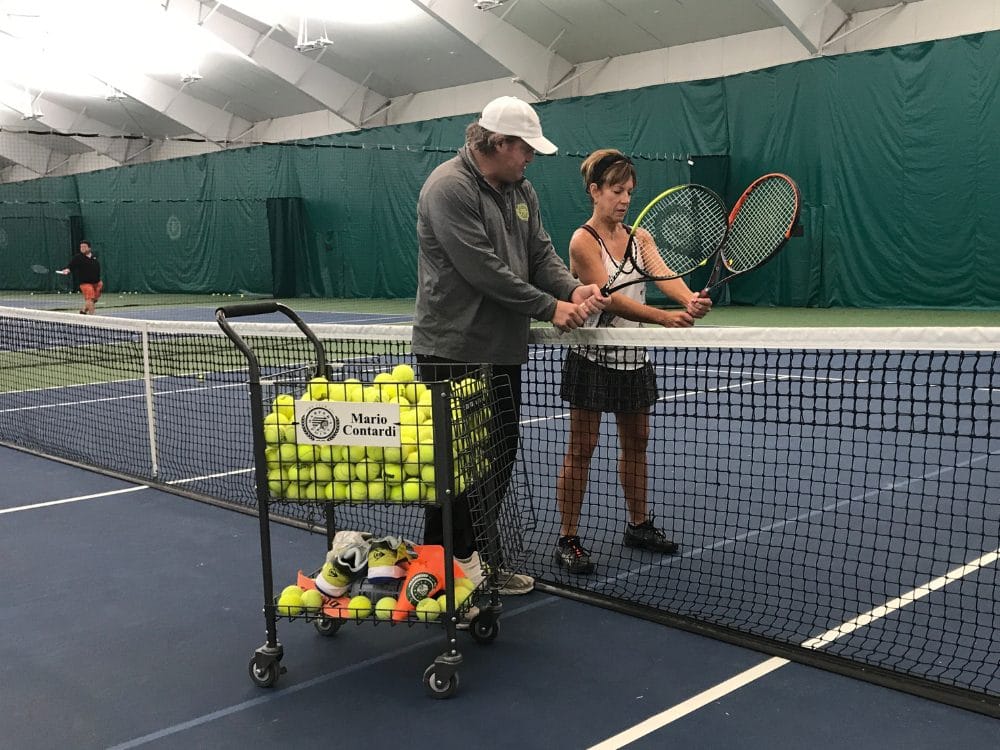4 Stages of Golf, Tennis, and Pickleball Skill Development Explained

Introduction
Learning any skill involves progressing through 4 stages:
Unconscious Incompetence: You don’t know what you don’t know.
Conscious Incompetence: You realize your gaps and start learning.
Conscious Competence: You can perform the skill but need focus.
Unconscious Competence: The skill becomes second nature.
This model helps you identify where you are in the process and how to move forward. For example, frustration in Stage 2 is normal and can be overcome with practice and feedback. By understanding these stages, you can track progress, stay motivated, and eventually master any skill.
Detailed Look at the Four Stages of Skill Development
Stage 1: Unconscious Incompetence
At this stage, learners don’t realize their skill gaps or the effort it takes to improve. For instance, someone trying golf for the first time might think hitting the ball accurately is easy, only to discover the complexities of a proper swing. Essentially, they don’t know what they don’t know.
The main hurdle here is overcoming this lack of awareness. This usually happens through exposure to the skill or feedback from others.
Stage 2: Conscious Incompetence
Here, learners begin to see the difference between where they are and where they want to be. They become aware of their limitations, which can feel discouraging. However, this realization is a crucial step toward improvement.
Take golf again as an example: beginners might notice they frequently miss their target. Recognizing these gaps often sparks the motivation to improve through focused practice.
Stage 3: Conscious Competence
At this point, learners can perform the skill but only with concentrated effort. Every move requires attention and deliberate action. For example, a tennis player at this stage has to actively think about their footwork, swing, and positioning for each shot.
To progress, learners should:
Practice regularly with correct techniques.
Seek feedback from experienced coaches or mentors.
Gradually tackle more advanced aspects of the skill.
Stage 4: Unconscious Competence
This is the stage of mastery, where performing the skill feels effortless. Think of professional musicians - they play intricate pieces without overthinking the mechanics, focusing instead on artistic expression.
By this stage, actions are driven by muscle memory and require little conscious thought.
Stage | Focus Area |
|---|---|
Unconscious Incompetence | Becoming aware of skill gaps |
Conscious Incompetence | Learning the basics |
Conscious Competence | Practicing and refining skills |
Unconscious Competence | Mastery and instinctive execution |
Platforms like TeachMe.To can be particularly helpful during the second and third stages, offering expert guidance to speed up progress and strengthen skills.
Knowing these stages is just the start - success depends on regular practice, honest self-assessment, and guidance from the right resources.
Applying the Stages to Your Skill Development
Assessing Your Current Stage
Figuring out where you are in your skill development journey starts with honest self-reflection. Are you still focusing on refining techniques (Stage 3), or have you reached a point where actions feel natural and automatic (Stage 4)?
Here’s how to assess your stage effectively:
Track your progress: Keep an eye on specific metrics tied to your skill.
Identify challenges: Write down areas where you consistently face difficulties.
Gauge effort levels: Pay attention to how much conscious thought each task requires.
By pinpointing your stage, you can align your practice and feedback efforts to address what you need most right now.
Importance of Practice and Feedback
Focused practice paired with regular feedback can speed up your progress significantly - by as much as 40%. The key is to stick to a structured approach.
Practice Element | Purpose | Example |
|---|---|---|
Focused Sessions | Sharpen specific skills | Daily targeted practice |
Progressive Loading | Build gradually | Increasing skill challenges |
Performance Tracking | Monitor improvements | Recording your progress |
Using Coaching and Mentorship
Working with an expert can make a huge difference in how quickly you improve. For example, a study on tennis players found that those with professional coaches advanced from Stage 2 to Stage 3 in just 3 months, compared to 7 months for those learning on their own.
Platforms like TeachMe.To connect learners with skilled coaches who provide personalized feedback, tailored drills, structured plans, and the encouragement needed to tackle obstacles. This type of guidance complements your own efforts, creating a balanced approach to mastering new skills.
While coaching can speed things up, it’s still up to you to stay consistent and address any hurdles along the way.
Overcoming Skill Development Challenges

Handling Frustration in Stage 2
The conscious incompetence stage can be tough. This is when people often realize just how much they don’t know, leading to frustration. Studies show this stage sees the highest dropout rates in skill development. Here’s how to tackle common challenges during this phase:
Challenge | Solution | Expected Outcome |
|---|---|---|
Awareness of gaps | Break skills into micro-goals | Progress feels achievable |
Loss of motivation | Get frequent feedback | Boosted confidence |
Comparing with experts | Focus on personal progress | Reduced frustration |
Working with skilled instructors can make a big difference here. They offer practical strategies to address specific weaknesses, helping learners move through this stage more effectively. Once past Stage 2, the focus shifts to maintaining steady progress in Stage 3.
Keeping Up Progress in Stage 3
Stage 3, known as the conscious competence stage, is where deliberate practice starts paying off. However, it’s also a balancing act: practice too hard, and you risk burnout; practice too little, and progress slows. A structured approach is key to staying on track:
Smart Practice Scheduling
Keep practice sessions short - 30 minutes with 10-minute breaks
Alternate between challenging tasks and easier, maintenance activities
Build in recovery days to recharge
This method not only keeps burnout at bay but also improves consistency by up to 40%. The trick is to balance focused effort with regular recovery.
Progress Monitoring
Track your performance metrics, celebrate milestones, and keep an eye on your energy levels. This helps ensure steady growth while avoiding overexertion.
For extra support, consider working with an experienced coach. They can adjust your practice plan based on your skill level and energy, offering feedback and tweaks to keep you moving forward without overdoing it.
Understanding the 4 Stages of Learning
Conclusion: The Journey of Skill Development
Mastering a skill involves moving through four stages, each with its own challenges and focus areas. By understanding these stages, you can turn frustration into motivation and follow a clear path to improvement.
The process from unconscious incompetence to unconscious competence isn’t static - it takes time, practice, and determination. Here's a breakdown of what happens at each stage:
Stage Transition | Key Focus | Success Factors |
|---|---|---|
Stage 1 to 2 | Self-awareness | Honest assessments and feedback |
Stage 2 to 3 | Deliberate work | Structured learning and guidance |
Stage 3 to 4 | Consistency | Repetition and fine-tuning |
Having the right support can make a big difference. Coaches or mentors can offer tailored advice and help you stay on track with personalized feedback and strategies [2].
To keep progressing, keep these tips in mind:
Use feedback to identify areas for improvement.
Break progress into smaller, achievable steps, and don’t hesitate to seek expert help when needed.
Timelines for skill development can vary greatly, so focus on steady improvement rather than rushing the process [3]. By understanding and working through each stage, you’ll stay motivated and reach your goals more effectively.
FAQs
Here are answers to some common questions about the stages of skill development.
What are the 4 stages of skill development?
The four stages of skill development, introduced by Noel Burch, include:
Unconscious Incompetence: You don’t realize what you don’t know or that improvement is needed.
Conscious Incompetence: You recognize skill gaps and understand the effort required to improve.
Conscious Competence: You can perform the skill with focus and deliberate effort.
Unconscious Competence: The skill becomes second nature, performed automatically.
These stages provide a clear roadmap for learning and mastery, helping individuals track their progress and identify areas to work on [1].
What is the conscious competence stage?
The conscious competence stage is the third step in skill development. At this point:
You’ve learned the techniques required for the skill.
You can perform the skill accurately with focused effort.
Execution still takes mental concentration and practice.
This phase is where learning transitions toward mastery. While you can perform the skill correctly, it hasn’t yet become automatic. Continued practice helps move toward the final stage, unconscious competence [2][3].
